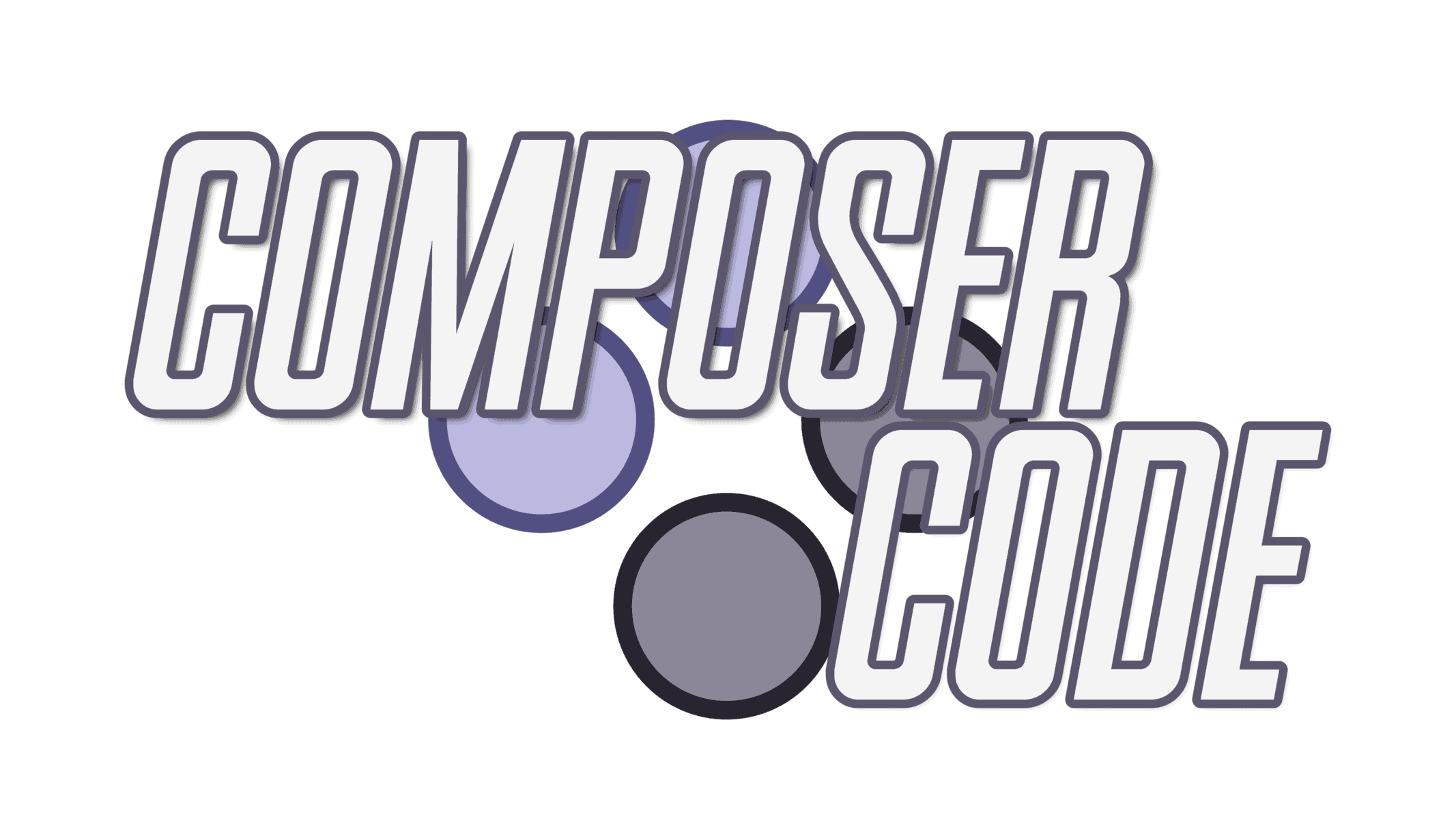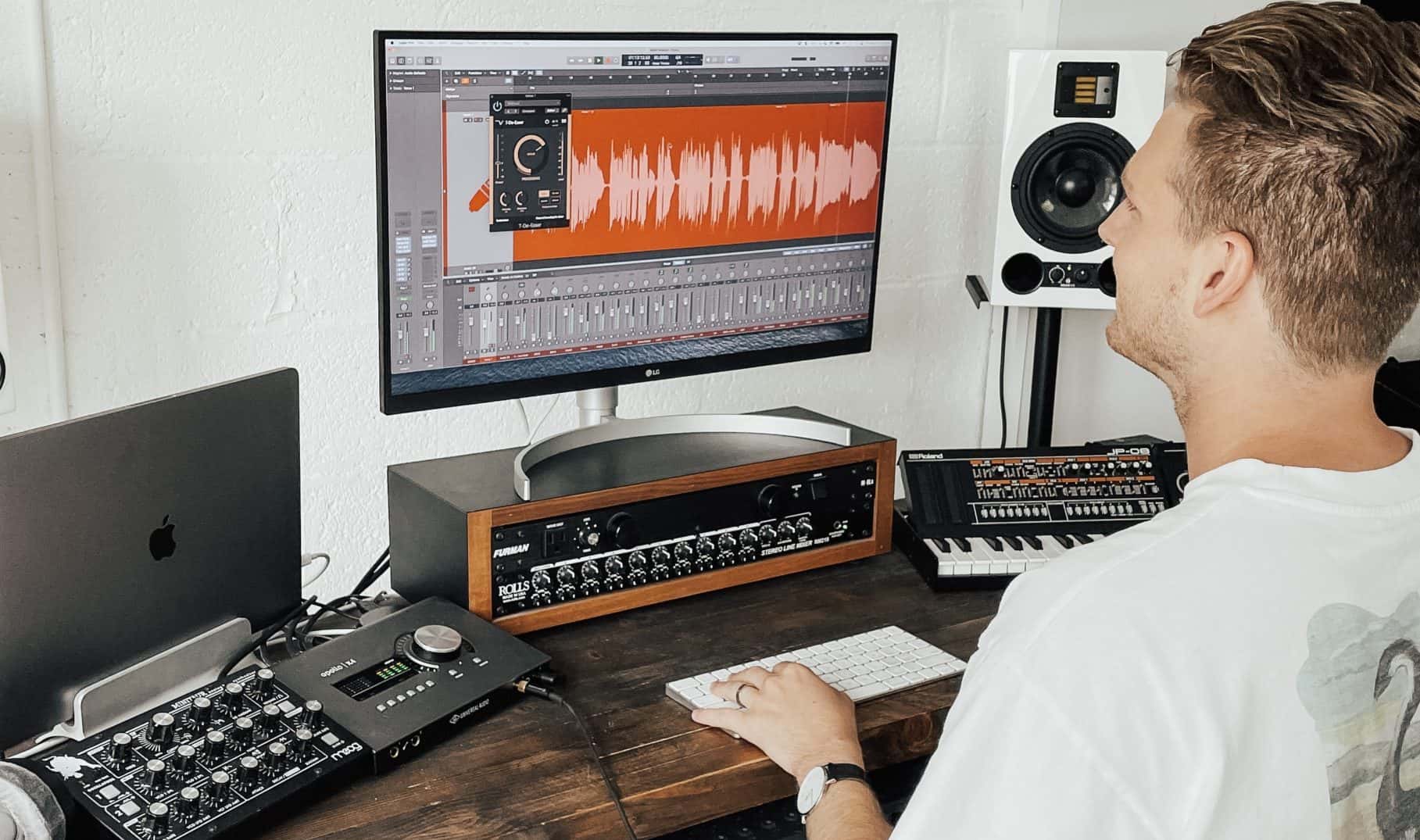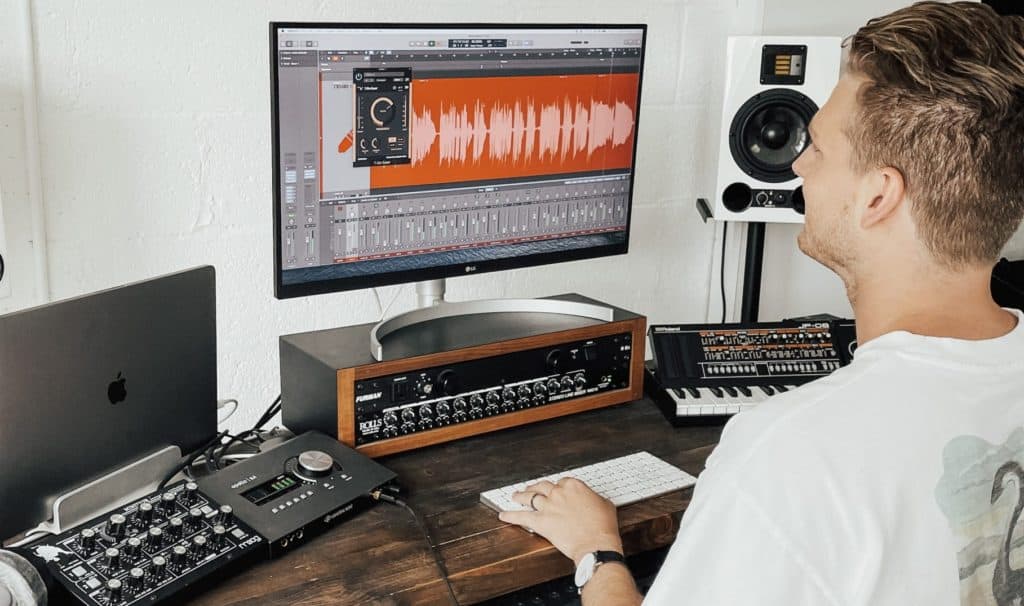
Finding video game composer jobs is a bit like going on a treasure hunt. This industry isn’t like engineering, law, or medicine. There is no set path, and getting your degree doesn’t even guarantee you’ll find success in this industry.
There are systems and structures built to help composers find developers to work with, but it can sometimes feel a bit like the Wild West – and very overwhelming.
If you’re set on pursuing video game composition as a career (or at least a side gig), my hope is that this post will help ease your mind a bit and give you some rails to run on.
In this article, we’ll go over:
- The different types of composer jobs and their pros and cons
- The skills required for winning over developers and getting hired
- How to improve your chances of success in video game music and sound design
- The specific places to look for video game composer jobs, both offline and online
Note: we won’t be going over any of the specific ways to improve the actual craft of composition. For that, I highly recommend you check out my most popular post on how to become a video game composer.
With that said, let’s jump in.
Table of Contents
The different types of video game composer jobs
Freelancing vs. in-house composition
As a general rule, composers often fall into one of two categories: freelance composers and in-house composers.
(Though, according to industry data, the most successful composers do both!)
Freelance composers are, well, freelancers. They work from home (or wherever they want), often on a per-project basis. This can be great for composers who crave flexibility and desire the ability to take on as many or as few projects as they want.
The downside of freelancing is that it can be feast or famine in terms of workflow. You might have a ton of work one month and then nothing the next. This can be stressful, especially if you have a family and other mouths to feed.
It also means you’ll need to be extremely financially disciplined and learn basic business accounting skills. You’ll also want to invest in a solid CPA to help you structure your business and file your taxes (trust me on this. I can’t speak for other countries, but if you live in the US, self-employment tax is no joke).
In-house composers are, as you might’ve guessed, composers who are employed by video game development companies. They typically work on-site (though sometimes they can telecommute) and have a regular salary and benefits.
This can be great for composers who want the stability of a full-time job and don’t mind (or even enjoy) working closely with developers on a day-to-day basis. The downside is that you might not have as much creative freedom, since you’ll be working within the parameters set by the game developers.

| Pros of freelancing | Cons of freelancing |
|---|---|
| Much more room for scalability | No structure; may be difficult for undisciplined people |
| The ability to build a brand with a full team | Lots of time alone; extroverts may get lonely |
| Complete creative control | Riding the “entrepreneurial roller coaster” can be emotionally taxing |
| The ability to be “choosy” with projects | Running a freelance operation requires marketing, accounting, admin work, and more |
| Autonomy with working hours and working location | Income can be feast or famine |
| Pros of salaried work | Cons of salaried work |
|---|---|
| Working closely with the development team and other composers is extremely rewarding | Not a whole lot of room for growth unless you want to be a music/audio director |
| Prospecting is not the responsibility of the composer but the company itself | You may need to work on projects you’re not passionate about |
| Benefits like healthcare, 401k contributions, and paid sick leave | The average earning potential is lower |
| Structured and (often, but not always) more stable than freelancing | Not a lot of autonomy concerning work hours and work location |
The skills and experience required for video game composer jobs
If you want to position yourself as the best person for the job, there are some essential skills you’ll need to develop.
Obviously, you’ll need to know your way around a piece of music. But there’s far more involved in success as a video game composer.
Technical skills
I know it seems like a given, but video game composers need to have a strong understanding of music composition and theory.
They should be able to write for a variety of instruments and genres, and they should be familiar with the different ways that music can be used in video games. In addition to their musical skills, video game composers also need to be proficient in audio production basics and video game engines.
This includes implementation tools, like Middleware, as well as a basic understanding of the most popular game engines (Unreal, Unity, GameMaker Studio, etc.).
Note: You do not need to be an expert in these technologies. You just need to understand how they work and be able to “speak the language” to developers.
Creative skills
Video game composers need to be able to create original music that fits the tone and style of the game. They should be able to work within the game’s audio budget and be mindful of how their music will interact with the game’s sound effects.
This often means playing the demo over and over and over (just like Gareth Coker did for Ori and the Blind Forest) to really internalize what kind of music the game needs.
In addition, video game composers need to be able to take direction from game developers and adapt their music to fit the needs of the project.
Collaborative skills
We creative types can get a bit… shall we say, “precious” about our craft. Well, you’d better kick that to the curb. In this business, the ego is the enemy.
Since video game composition is such a collaborative process, video game composers need to be able to work well with other members of the development team.
Remember, the game director is the main stakeholder. If they say they want a bossa nova tune over the boss fight, you can present your arguments all you want, but their word is gospel at the end of the day.
It’s important to learn to take feedback and make changes to the music as needed, as well as interpret emotional language from stakeholders into musical language.
Negotiation skills
Man, if there’s one skill set that almost all creatives neglect, it’s the ability to negotiate. Ironically, this is the one skill that can jumpstart your career more than anything else on this list.
If you want to get paid what you’re worth (and not a penny less), you need to learn how to negotiate your fees. How much should you charge for a video game score? What’s the going rate for video game composer jobs?
Unfortunately, there’s no easy answer. It depends on a variety of factors, including the size of the project, the scope of the work, your experience level, and more.
For more on the money side of things, check out my post on how much video game composers make.
The best way to learn how to negotiate is by studying sales professionals, reading books, and watching tutorials online. A good place to start is Getting to Yes by Roger Fisher and William Ury.
The more you do it, the better you’ll get at it. And trust me, that brief moment of discomfort in asking for more money will quickly fade… but the cash will still be there.
Soft skills
Here is a universal reality: your best bet at growing your video game career is repeat business. Almost everyone I’ve talked to finds the greatest amount of success – financially and otherwise – by partnering with a game developer and sticking with them for the long haul.
Developers don’t want to be constantly switching composers. Would you? That sounds like an expensive hassle.
Here’s another universal reality: nobody wants to work with an a**hole. If you’re an absolute nightmare to work with, you may get your paycheck at the end of the commission, but that phone will never ring again.
In the corporate world, we call this whole not-being-a-jerk thing “soft skills.” These are skills that you don’t necessarily go to a classroom to learn but are still essential for the job.

Soft skills include, but aren’t limited to:
- The ability to take feedback – You’re going to be getting a lot of feedback in this business! You need to develop a thick skin and learn to not take it personally.
- The ability to work well under pressure – Deadlines are real. You need to learn how to deliver on time, under budget, and potentially with a lot of stakeholder pressure.
- The ability to communicate effectively – I could write a whole blog post about this. Just don’t be rude over email. Opt for an in-person or Zoom meeting to avoid miscommunications. Overcommunicate your expectations so nobody is let down. Try to put yourself in the other person’s shoes, and think “win-win.”
All of these skills are important for video game composers. And while you can’t necessarily learn them in a classroom, there are plenty of ways to develop them.
You can read books on the subject, take online courses, or even just try to be more conscious of these things in your daily life.
Some great resources include:
- How to Win Friends and Influence People by Dale Carnegie – This one is a bit of a classic, but it’s still relevant today. If you want to learn how to be more likable and persuasive, this is a great place to start.
- The 7 Habits of Highly Effective People by Stephen Covey – Another classic that will teach you how to be more productive and effective in your work.
- Getting Things Done by David Allen – This book is all about time management and being productive. If you’re struggling with deadlines, this is a great resource. I personally use a slightly customized version of this methodology to manage my day job, run a profitable marketing agency, produce content for this site, and still have time to spend time with my family. Without it, I’d be totally overwhelmed!
There are also plenty of online courses that can help you develop these skills. Coursera and Udemy both offer a variety of courses on topics like effective communication, time management, and more.
Developing your soft skills is just as important as developing your musical skills when it comes to video game composition. So don’t neglect this part of your development as a composer!
How to improve your chances of getting video game composer jobs
As a professional looking to build your career, you should always be looking for “unfair advantages.” While you can’t control who hires you, you can do some things to tip the scales in your favor.
Note that I’m not necessarily endorsing all of these as things you “must do.” You need to evaluate the cost, pros, and cons of each point against your current situation.
Get a degree in game composition
While a degree isn’t always necessary (heck, I’m a college dropout), it can give you a solid foundation in music theory and video game audio production. In addition, having a degree can make you more attractive to potential employers.
There are a few different programs out there that offer degrees in game composition, including Berklee College of Music and the video game audio program at the University of Southern California.
I’m sure there are also great online programs for those who don’t want to relocate.
Getting a degree will also give you the opportunity to network with other students and professionals in the video game industry. These connections could come in handy later on in your career.
Here’s the thing, though. Unless you’re cash-flowing your education, you will take on debt in the form of student loans. In business, we call this a liability on your balance sheet. Depending on which school you choose, this could mean paying off your loans with all your composer revenue for the foreseeable future.
Do you want to start your career off with a bunch of debt? Maybe the answer is “yes” because the education is worth it. These are all questions you’ll need to weigh and consider carefully.
Build a strong portfolio
Your portfolio is going to be one of the most important things when it comes to getting video game composer jobs. Obviously, developers want to know that you can actually… ya know, compose.
If you haven’t worked on any formal projects, you can re-score the footage of an existing game or even commission original artwork on sites like Fiverr or Upwork and write music for it.
However, an even better idea is to scour Twitter and Facebook Dev groups for in-progress games. Once you find one that fits your style, DM the developer and ask if you can write an original track for the game, no strings attached.
You’ll then score their footage and include it in your demo reel (with credit back to the developer, of course).

Heck, as an added bonus, you can even say you’ll give the track to the dev for free if they like it.
That way, you’re not only building up your portfolio with real games but also building connections with developers (and who knows, maybe they’ll like your work enough to hire you!).
There’s literally no downside to this strategy; everybody wins.
Get experience and referrals
One of the best ways to get video game composer jobs is by getting referrals from people you know. Your network is your net worth, as they say.
So if you know anyone who’s already working in the video game industry, see if they can put in a good word for you with their contacts.
This is exactly what happened to me. I was working with Steven Melin as a composer assistant and he was approached to score a 16-bit platformer. He knew I loved that style and he referred the inquiry to me (while very graciously putting in a great word for me).
The next thing you know, I’m composing multiple soundtracks (remember repeat business??) with this developer.
One of the cheapest, fastest, and most effective ways to accelerate your experience is to get involved in game jams. Game jams are video game development competitions where teams have a set amount of time, usually 48 hours to 72 hours, to create a video game.
Most jams follow a theme and the development teams almost always need original music.
So not only is this a great way to actually work with game developers and fill up your portfolio, but you’ll also have a bunch of fun and meet some great people along the way.
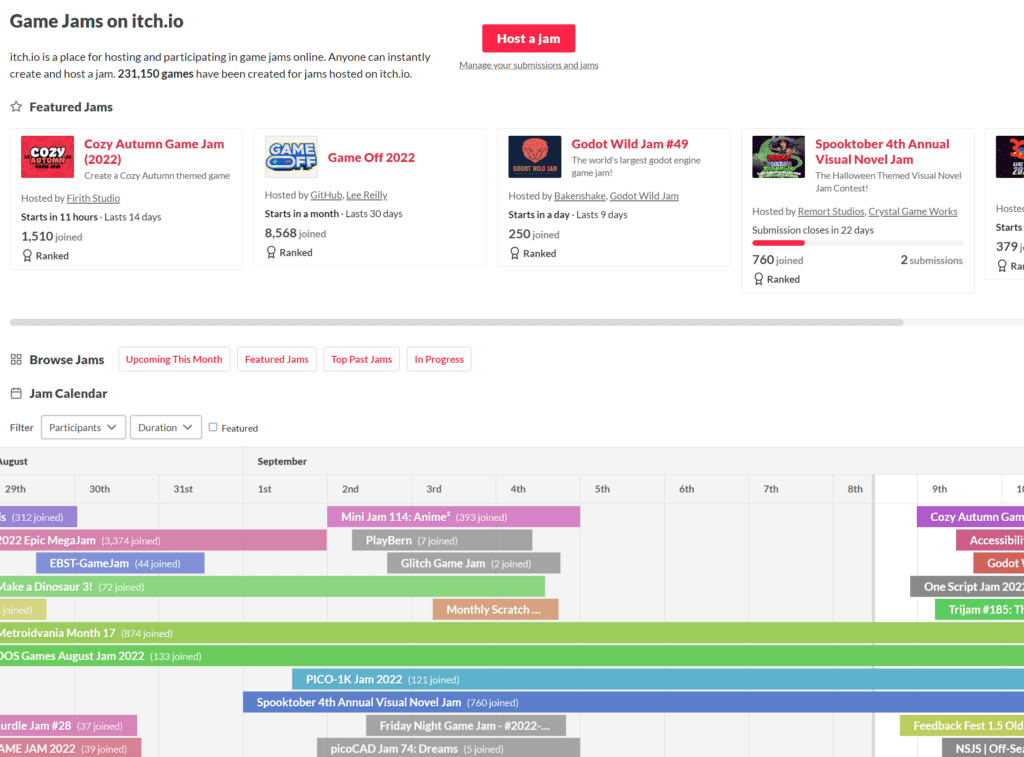
Participating in the 2019 Indie Galactic Game Jam here in Orlando was one of the most fun experiences of my life. Even if you don’t have any local game jams, itch.io is constantly hosting online jams.
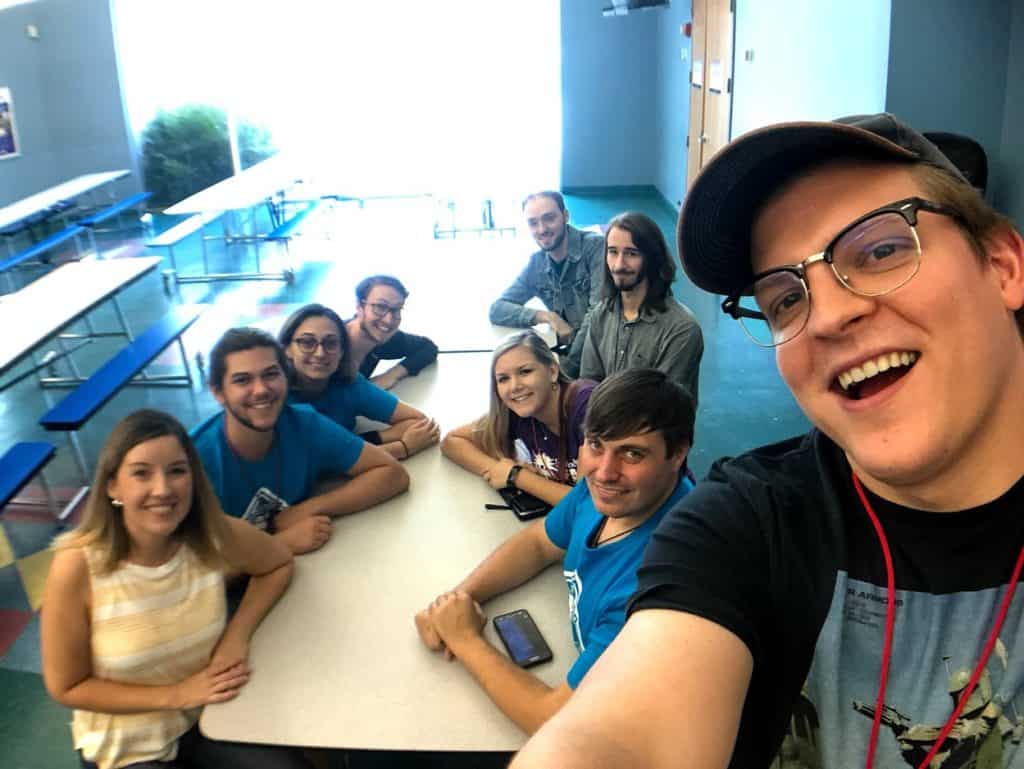
Plus, any pieces you write can go straight to – you guessed it – your portfolio. If you need a place to start getting real-world experience, look no further!
Join the Game Audio Network Guild (G.A.N.G.)
The Game Audio Network Guild is a non-profit membership organization for video game music and audio professionals around the world.
While it’s not required to get video game composer jobs, becoming a member has a lot of benefits. Firstly, it looks great on your resume. Secondly, you get access to a whole community of video game music and audio professionals who can help you with your career.
You also get discounts on video game music and audio software, events, and more. If you’re serious about becoming a video game composer, finding a mentor (or a community of mentors) is one of the best investments you can make.
Best places to find video game composer jobs
Now that we’ve covered the different types of video game composer jobs and how to increase your odds of acquiring them, let’s look at the best places to find said jobs.
I recommend that you establish a weekly rhythm of checking the following sites for composition opportunities:
- IndieGameMusic.com
- Upwork
- Indeed.com
- Facebook Groups
- Twitter hashtags (#screenshotsaturday, #indiedeveloper, etc.)
- GameJolt
- Fiverr
- TIG Source forums
As you can see, there’s no shortage of online places to find video game composer jobs.
But one of the best things you can do to accelerate your composition career is to attend in-person events. There simply is no match for shaking someone’s hand and having a real-life conversation. No amount of online touchpoints can even come close to that.
Some great game music conferences are:
- Game Music Connect (London, UK)
- GameSoundCon (San Francisco, USA)
- GDC (San Francisco, USA)
- IndieCade (Los Angeles, USA)
- MIGS (Montreal, Canada)
- PGConnects (London, UK)
- Rezzed (Birmingham, UK)
- Superbooth (Berlin, Germany)
Obviously, this is a very costly investment, especially if you’re like me and live on the East Coast. However, if you can swing it, you won’t regret it.
There are also numerous meetups and smaller events happening all the time in cities around the world. If you want to get involved in the video game music scene in your area, Google and Meetup.com are your friends.
Final thoughts
I hope this article has given you a better understanding of video game composer jobs and how to acquire them.
Remember, the video game music industry is still in its infancy, so there’s a ton of opportunity for talented composers who are willing to hustle and think outside the box.
If you’re persistent and hardworking, there’s no reason you can’t have a successful career as a video game composer.
I wish you all the best in your musical endeavors. And if you want to learn more about the craft of game composition, you can watch some free lessons from my course, Making Game Music: The Fundamentals of Composition.
Thanks for reading!
